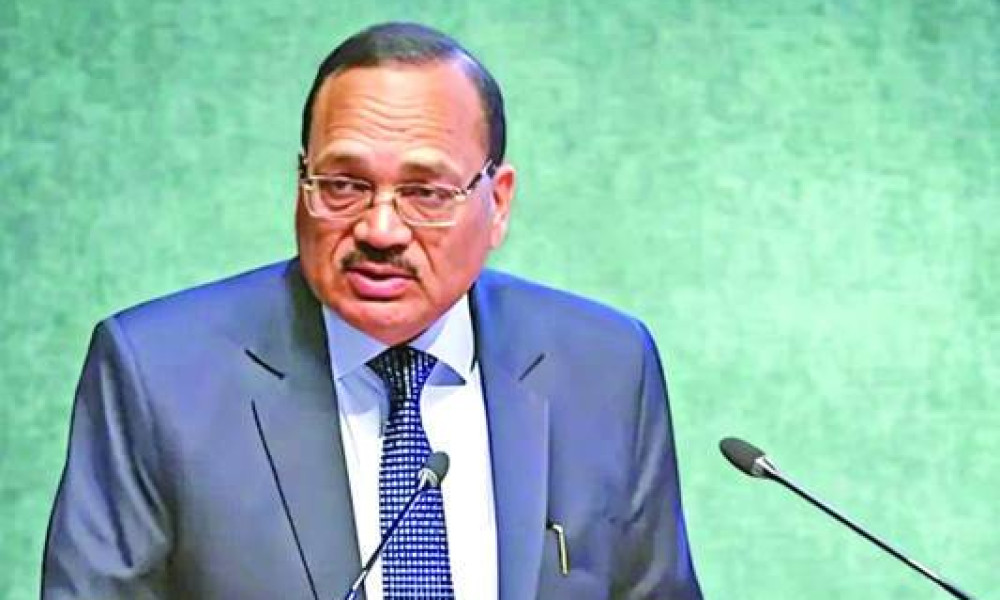Justice Surya Kant has been appointed as the 53rd Chief Justice of India, marking a significant milestone in the nation’s judicial history. His journey from a small-town lawyer to the highest judicial office is a testament to his dedication and legal acumen. This appointment brings a wealth of experience from landmark cases that have shaped India’s legal landscape.
He will take the oath of office on November 24 and serve as CJI for nearly 15 months. Justice Kant will demit office on February 9, 2027, upon attaining the age of 65 years. The Department of Justice in the Union Law Ministry has officially issued the notification for his appointment.
The process to appoint Justice Kant as successor to incumbent CJI B R Gavai was set in motion last week by the Law Ministry. Justice Gavai had recommended Justice Kant’s name to the Centre on October 27, ensuring a smooth transition. Justice Kant was elevated to the Supreme Court on May 24, 2019, bringing with him a rich background of judicial work.
Born on February 10, 1962, in Hisar district of Haryana to a middle-class family, Justice Kant’s rise is inspirational. He distinguished himself academically by standing ‘first class first’ in his Master’s degree in law from Kurukshetra University in 2011. His career reflects a commitment to justice and equality from the grassroots up.
Justice Kant has been part of several landmark verdicts, including those on the abrogation of Article 370, which removed Jammu and Kashmir’s special status. His involvement in cases like the Pegasus spyware probe and electoral rolls revision in Bihar highlights his role in pivotal constitutional matters. These decisions underscore his impact on national issues.
He penned notable judgments during his tenure at the Punjab and Haryana High Court before being appointed chief justice of the Himachal Pradesh High Court on October 5, 2018. His elevation to the Supreme Court further amplified his influence on key legal fronts, from free speech to citizenship rights.
Justice Kant was part of the bench that addressed the presidential reference on the powers of the Governor and President regarding state assembly bills. This verdict is eagerly awaited for its potential ramifications across states, showcasing his role in interpreting executive-legislative dynamics.
In a significant move, his bench kept the colonial-era sedition law in abeyance, directing that no new FIRs be registered under it pending a government review. This decision reflects a cautious approach to laws affecting civil liberties, balancing security with individual freedoms.
He nudged the Election Commission to disclose details of 65 lakh voters excluded from draft electoral rolls in Bihar, emphasizing transparency in democratic processes. This action came while hearing petitions challenging the poll panel’s decision, highlighting his commitment to electoral integrity.
Justice Kant led a bench that reinstated a woman sarpanch unlawfully removed from office, calling out gender bias and reinforcing grassroots democracy. He also directed that one-third of seats in bar associations, including the Supreme Court Bar Association, be reserved for women, promoting gender equality in the legal profession.
He was part of the bench that appointed a five-member committee to probe the security breach during Prime Minister Narendra Modi’s visit to Punjab in 2022, citing the need for a judicially trained mind. This move underscored the judiciary’s role in ensuring accountability in high-stakes security matters.
Justice Kant upheld the One Rank-One Pension scheme for defence forces, deeming it constitutionally valid, and continues to hear petitions from women officers seeking parity in permanent commission. His rulings often balance policy implementation with fundamental rights, ensuring fairness.
In another notable case, he upheld the Char Dham project in Uttarakhand, emphasizing its strategic importance for national security while addressing environmental concerns. This decision illustrates his ability to weigh competing interests in development and ecology.
His bench observed that freedom of speech is not a licence to flout societal norms, cautioning individuals like podcaster Ranveer Allahbadia for derogatory remarks. He also pulled up stand-up comedians for ridiculing disabled people and directed the Centre to develop guidelines for regulating online content.
Justice Kant has repeatedly underscored that corruption undermines governance and public trust, ordering probes into cases exposing nexuses between banks and developers. In a 2023 verdict, he called corruption a serious societal threat, demonstrating his firm stance on accountability and justice.

